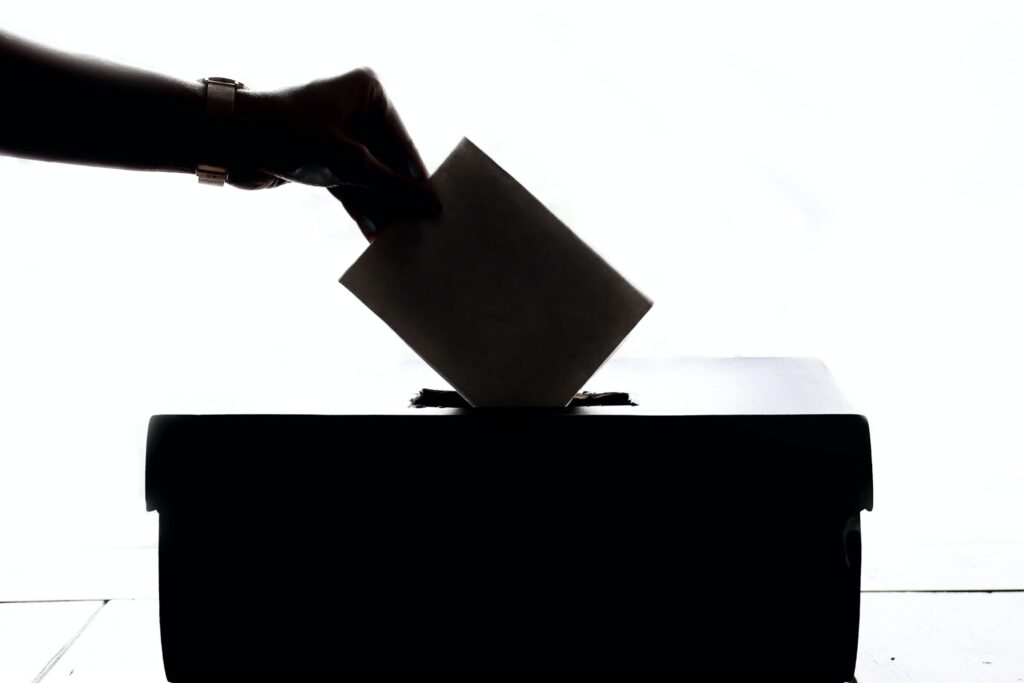Ranked-choice voting is becoming a popular idea, but the consequences might not be great

More and more ranked-choice voting has been getting talked up as the “key to fairer elections,” and after Democrat Laura Kelly became Governor of Kansas, it seems this voting system has become a popular idea here in the Free State. On Sunday, the Kansas City Star published a letter to the editor on ranked choice voting from Nick Simpson of Lawrence, Kansas.
“Under the common version of ranked-choice voting, you pick candidates in order of preference,” Simpson wrote. “A conservative Pyle voter likely would have put him first, Schmidt second and Kelly third. If no candidate gets more than 50% of the vote, then the lowest-polling candidate is dropped, and their votes go to the second choice. Under this system, a Pyle voter’s ballot would not be wasted, and the governor would have majority support.”
Simpson ended his letter, stating, “Ranked-choice voting would not only give voters more autonomy on election day but would prevent shady meddling in Kansas elections by D.C. bureaucrats.”
Our current voting method (plurality voting) is absolutely stupid. As someone who doesn’t consider themselves either a Republican or a Democrat, I have heard from both sides that if I vote third party then I’m automatically voting Republican or Democrat (whichever one they don’t like). This, of course, doesn’t make any sense because it’s simply not true. Under our current system, if I vote third party then my vote gets counted toward the third party candidate. Not to the Republican or the Democrat. However, plurality voting does mean my vote for a third party candidate doesn’t really matter.
I do agree with Simpson that Kansas needs to get away from the current voting system which is seemingly designed to ensure a duopoly of the parties instead of ensure that the candidate that best upholds the values of the People gets voted in whether the candidate is Republican, Democrat, or a third party.
Admittedly, ranked-choice voting was a voting system I was in favor of as recently as early 2023. However, the more I looked into it, the less favorable the system became to me. This is because studies, such as the one from the Maine Heritage Policy Center, have found that this method can lead to people that are not the true majority being elected, with this being the outcome 61.46 percent of the time, creating a false majority.
It’s important to understand that you may get your first choice eliminated on the final round in ranked-choice voting but your second favorite was eliminated immediately and never got counted. These ignored rankings are regarded as irrelevant in this method, but these ignored rankings could make a huge difference for many voters—something that is often left out when explaining ranked-choice voting.
Not only this, but ranked-choice voting is way less secure than other voting methods. This is because ranked-choice voting is more than just adding up votes and requires centralized tabulation with way more data to go off of that lacks checks and balances. This has led to real world problems such as in New York City which was the first of many cases of ranked-choice voting being problematic and lacking security. In this case they announced the results of each round over a period of days and the number of voters was not matching with the data from the exit polling. The New York Board of Elections back checked and discovered they accidentally added 135,000 test ballots. While this might seem like an error not caused by ranked-choice voting, the reality is that under any other voting method you can check your work as you go so that you don’t waste time and taxpayer dollars having to count and recount ballots.
Currently, the most common voting method we use is called plurality voting. This is when you get to vote for only one person and the person with the most votes wins, even if less than half the voting population voted for them. As stated above, this method ensures a two-party system, but does not ensure that the candidate with the broadest amount of support gets elected.
Personally, there are two other voting methods that I would much rather see being used in Kansas. The first is approval voting. This voting method would give you a ballot that looks similar to the ones we use now. However, instead of only voting for one person, you can vote for everyone you approve of. So, if you were a Kansan who approved of Dennis Pyle and Derek Schmidt, instead of having to pick one or the other, you could pick both. Everyone that gets a vote gets counted and whoever gets the most votes would be the one elected.
The other voting method I would be happy to see in Kansas is STAR voting. STAR is an acronym for Score Then Automatic Runoff. This starts by scoring the candidates from 0 to 5. You are also able to give candidates the same score. These scores are then averaged and the two candidates with the highest scores move to the next round—the automatic runoff round. This round is done by comparing the scores of the two final candidates on each ballot. The one who has the higher score receives the vote. However, if the two get a tied score, it becomes a vote of no preference. By the end of the round, the candidate that received the most ballots with the higher score wins. The Center for Election Science has found this to be the most accurate voting method. This is an extremely new method and one that has been growing in popularity thanks to groups like Equal Vote Coalition which has been educating people on the method.
So, again, while people like Simpson have the right idea about needing a new voting method, and while he has good intentions with wanting a way to more accurately represent the masses, he is being led astray by the ever growing idea of ranked-choice voting when there are other, more superior options.
Thanks for reading. Be sure to share and subscribe. You can also help support independent journalism in Kansas by buying me a coffee at buymeacoffee.com/kscon.

Ian Brannan
Ian Brannan is an independent journalist who founded The Kansas Constitutional in April 2022. His work focuses on issues including abortion, Convention of States, drug policy, education, government, LGBT issues, media, and more. He is also the co-host of the Remember COVID podcast.

